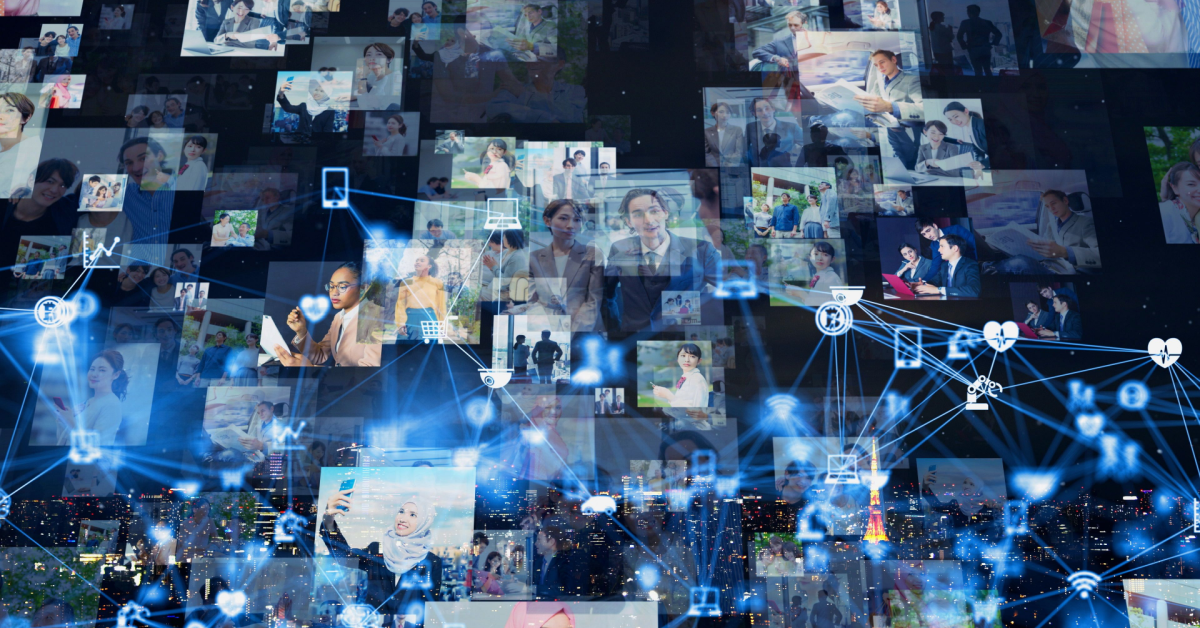How does AI promote diversity and inclusion?
Learn how to level the playing field with next-generation technology

Although most businesses are eager to become more inclusive, very few organizations can be considered equitable workplaces. Despite the progress that’s being made, 84% of employees have experienced workplace microaggressions—everyday slights rooted in unconscious bias.
To get to the heart of today’s inclusivity challenges, leaders must look beyond statements, scorecards, and two-hour trainings. While issuing surveys and ensuring your current workforce is building the skills it needs to foster inclusion are essential first steps, they must be followed up with actionable strides and a closer look at the tech that can either hinder or enhance workplace equity.
In the past, leaders often lacked a full picture of the biases and barriers that were holding their D&I efforts back, let alone the steps they should prioritize to level the playing field. Fortunately, the rise in AI-powered tools draws attention to existing D&I obstacles and pinpoints the actions leaders should take to achieve workplace equity.
Inclusivity: the D&I challenge that HR leaders must prioritize
D&I efforts are no longer solely an HR priority. A recent Deloitte survey found that nearly 1 in 2 CEOs count creating more equitable and inclusive workplaces as one of their top challenges.
Although most organizations have experienced slow growth in diversity in recent years, inclusivity efforts are often lagging behind. Nearly 40% of employees report that their organizations are putting too little effort into creating an inclusive environment. Without an equal emphasis on inclusion, diversity initiatives can be perceived as tokenism, suggesting that your organization is only hiring people from underrepresented groups to prevent criticism.
Diversity initiatives that aren’t paired with inclusivity efforts won’t last because employees won’t feel like they are being heard and valued. Over time, these workers may disengage, ultimately leaving your business for a more inclusive workplace. In contrast, employees at organizations that prioritize inclusivity are 1.5 times more likely than others to believe their career advancement is outpacing their peers. Overall, highly inclusive organizations generate 2.3x more cash flow per employee, 1.4x more revenue, and are 120% more capable of meeting their financial targets.
The role that AI plays in promoting inclusivity
Just as leaders turn their attention toward promoting D&I initiatives, the rise of ethically constructed AI-powered platforms promises to help businesses break down old barriers. While executives may not have had tools to help them create more equitable workplaces in the past, these innovations are designed to do just that.
AI can give leaders a full picture of their talent landscape by processing enormous data sets that no team of people could possibly handle at scale manually. By harnessing this data, AI-powered tools such as talent marketplaces can match people to relevant opportunities based solely on their skills and experiences. In turn, this technology spotlights qualified candidates who may have once been overlooked, empowering employees to apply for roles across the organization and paving the way for a more inclusive workplace.
4 reasons why ethical AI is essential for promoting diversity and inclusion
Here are a few reasons why AI tools are uniquely positioned to drive impact when it comes to promoting diversity and inclusion.
#1. Ethical AI can take bias out of the equation
When leaders make career development decisions, there’s a real risk that external factors can influence outcomes, usually subconsciously. Traditionally, career development has been determined, at least in part, by external factors such as who an employee knows and where they went to school, which often causes managers to overlook qualified internal candidates from underrepresented groups.
An ethically constructed talent marketplace should take these factors of the equation. Instead, the platform should match people to opportunities based solely on their skills, experience, and career ambitions, ensuring everyone has a fair chance.
#2. Ethical AI generates suggestions that might not have been considered
Leaders don’t always have the insights they need to get a full picture of their workforce’s skills. They might be aware of what their direct reports are doing, but lack visibility into the related capabilities that other team members are honing and how these skills intersect with their high-priority deliverables. Meanwhile, employees aren’t always aware of all the opportunities they qualify for.
By harnessing AI-powered tools like workforce intelligence, leaders and hiring managers gain a birds-eye view of their workforce’s capabilities. This will help them identify all of the internal candidates with the skills they’re looking for, in turn ensuring that employees from a broader range of backgrounds get considered for new opportunities.
#3. Ethical AI has built-in safeties to mitigate bias
The most impactful AI solutions don’t just make lofty promises about their ethical commitments. Instead, they have multiple safeties built in to ensure insights, suggestions, matches, and recommendations are unhindered by systemic bias. AI-powered platforms should also include tools and dedicated datasets that an organization’s Diversity Officers can harness to ensure no one is being overlooked or underrepresented.
#4. It drives leaders to reflect on their own beliefs
Once AI shines a spotlight on your entire workforce’s potential, leaders who continue to choose the same subset of candidates will need to reckon with their hesitancy to embrace employees with different backgrounds. As Hannah Smith, Associate Director of Talent Development at Fidelity, explains, “The talent marketplace brings bias to the forefront. When the AI keeps saying this person is perfect, the unconscious bias goes away. If you’re making the decision to turn someone down, you have to think about what is motivating you to do that.”
To learn more about how you can take bias out of the equation with ethical AI, find out how a workforce agility platform can help create a more inclusive organization.




